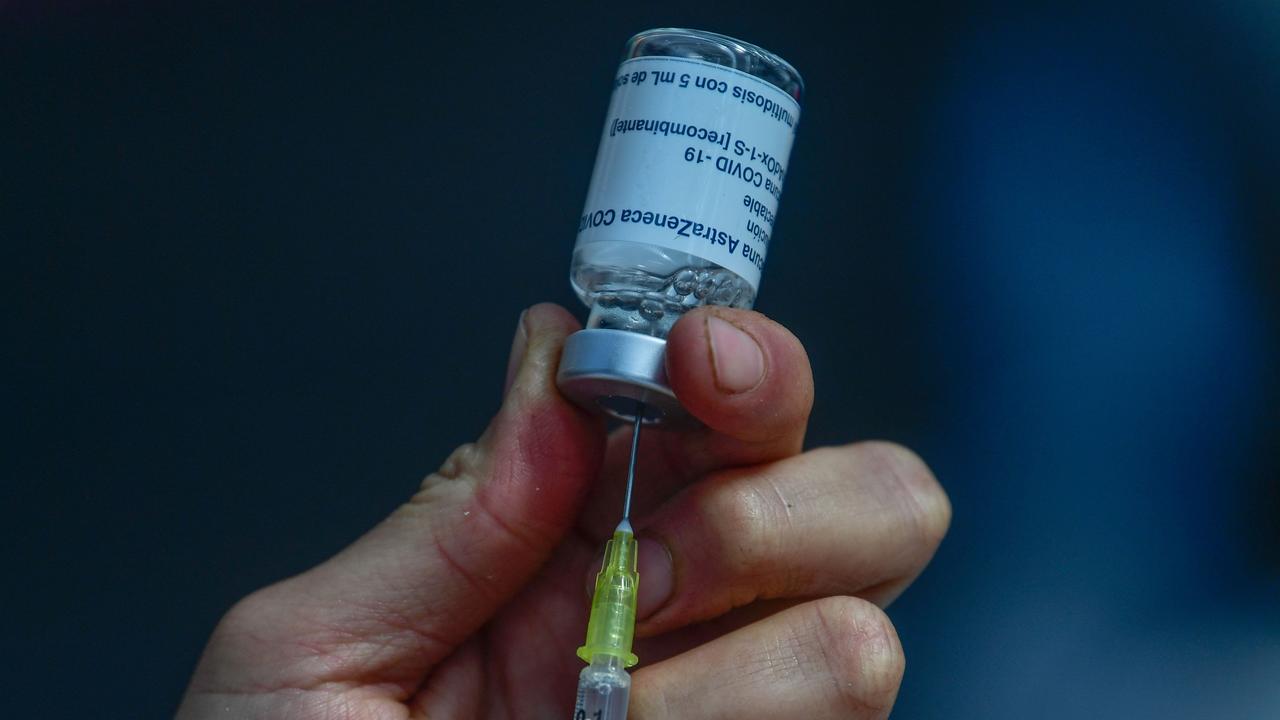Coronavirus spreading faster than ever before
Although some nations are seeing coronavirus cases starting to dip, the virus is spreading faster than ever on a global scale.

Although some nations are seeing coronavirus cases starting to dip, the virus is spreading faster than ever on a global scale.
There are now more than 100,000 new cases reported around the world each day and twice as many countries have reported a rise in new cases over the past two weeks as have reported declines, according to a New York Times database.
As of today, more than 6.5 million people worldwide have been confirmed infected with coronavirus and more than 386,000 have died, according to data compiled by Johns Hopkins University.
The actual number of infections is thought to be much higher, due to limits on testing and many asymptomatic cases.
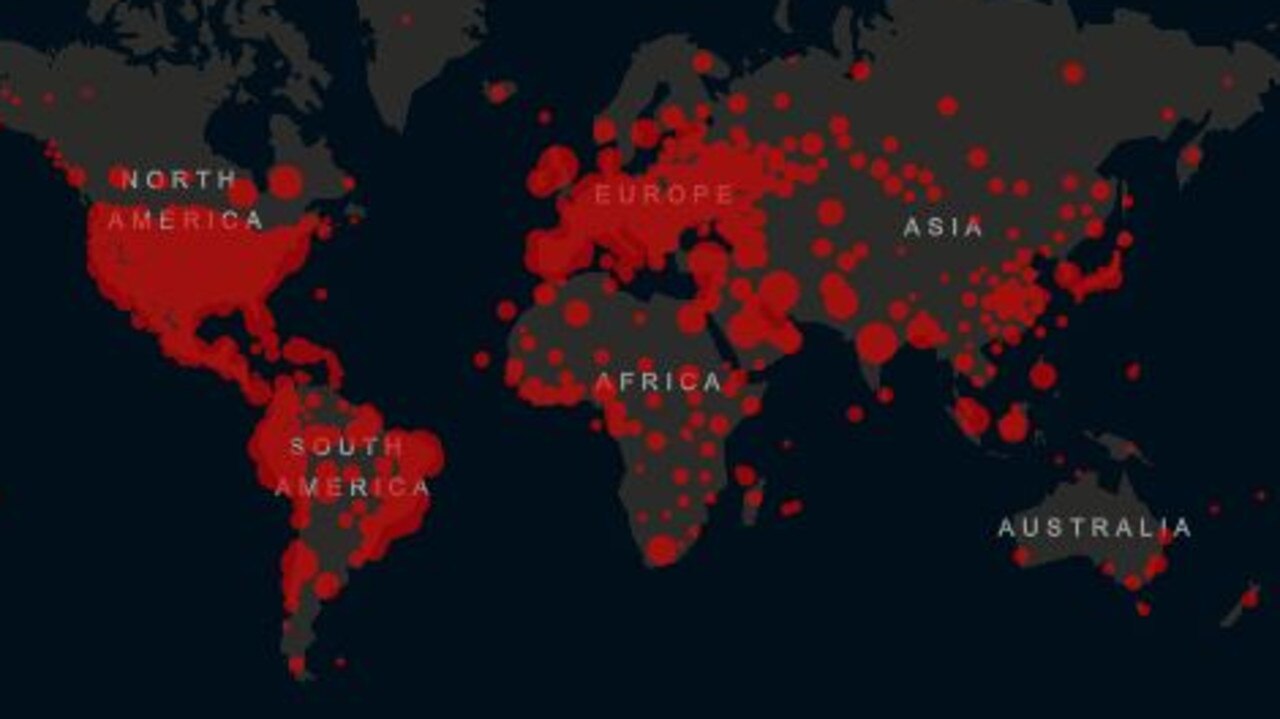
On May 30, more new cases were reported in a single day worldwide than ever before: 134,064.
The spike has been driven by cases in emerging hot spots in Latin America, Africa, Asia and the Middle East.
RELATED: Follow our full coronavirus coverage
SPIKES IN BRAZIL, INDIA AND PAKISTAN
Overnight Brazil reported yet another record number of deaths over the previous 24 hours – 1349.
Brazil’s confirmed death toll of more than 32,500 is the world’s fourth-highest and is considered a significant under-count due to insufficient testing.
India, meanwhile, reported a record number of infections – 9304, with 260 deaths – on Thursday as its tally of fatalities surpassed 6000 and its number of infections rose to nearly 217,000, the world’s seventh highest.
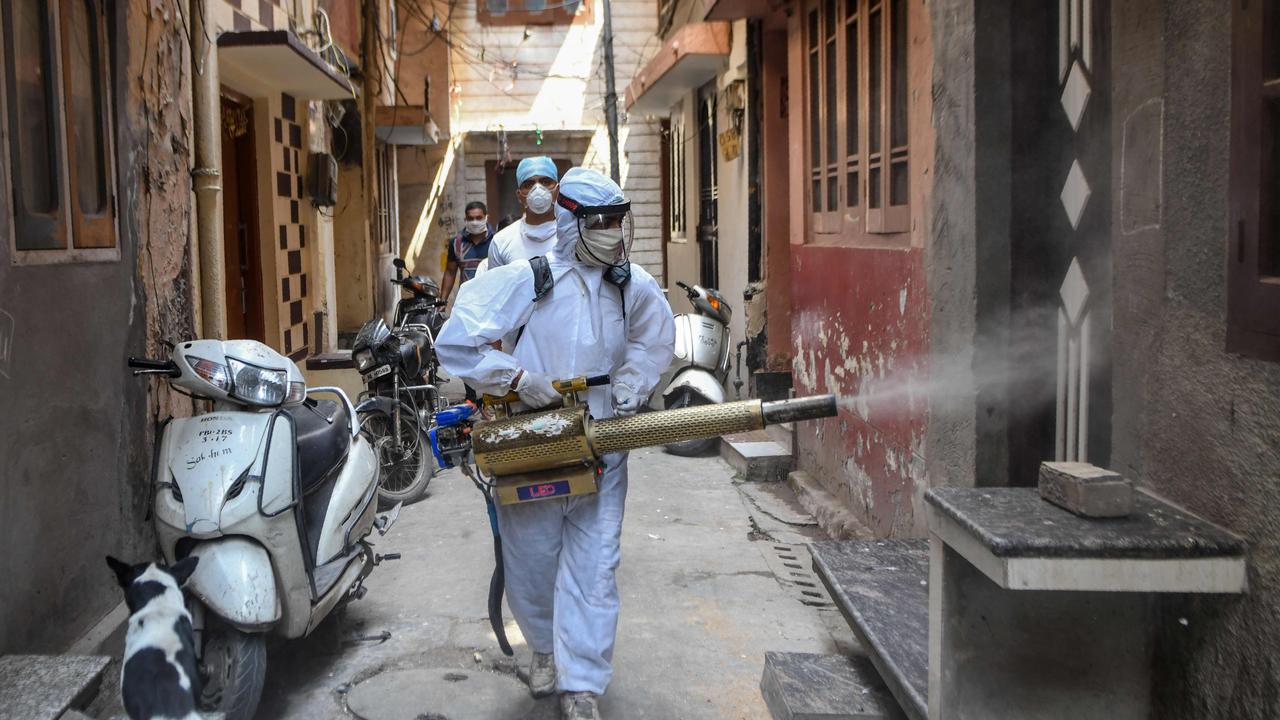
Neighbouring Pakistan reported more than 4000 new cases and 82 deaths as its confirmed cases surpassed neighbouring China, jumping to 85,264.
The spike came weeks after Prime Minister Imran Khan overrode warnings from experts and eased a lockdown.
As countries such as Australia and New Zealand mark progress in containing the pandemic and work on plans to resume some international air travel, others are having to step up precautions.
RELATED: Bali wants travel bubble with Australia
North Macedonia reintroduced stringent restrictions on movement in its capital, Skopje, and three other areas after confirming 101 new infections as of Thursday.
In the US, where a wave of protests is adding to concerns over possible additional outbreaks, new cases have been surging just weeks after many businesses were allowed to reopen.
Arizona officials reported nearly 1000 new cases on Wednesday amid a surge in hospitalisation, a little over two weeks after Governor Doug Ducey ended the stay-at-home order. The state has now tallied more than 22,000 cases and 981 deaths.
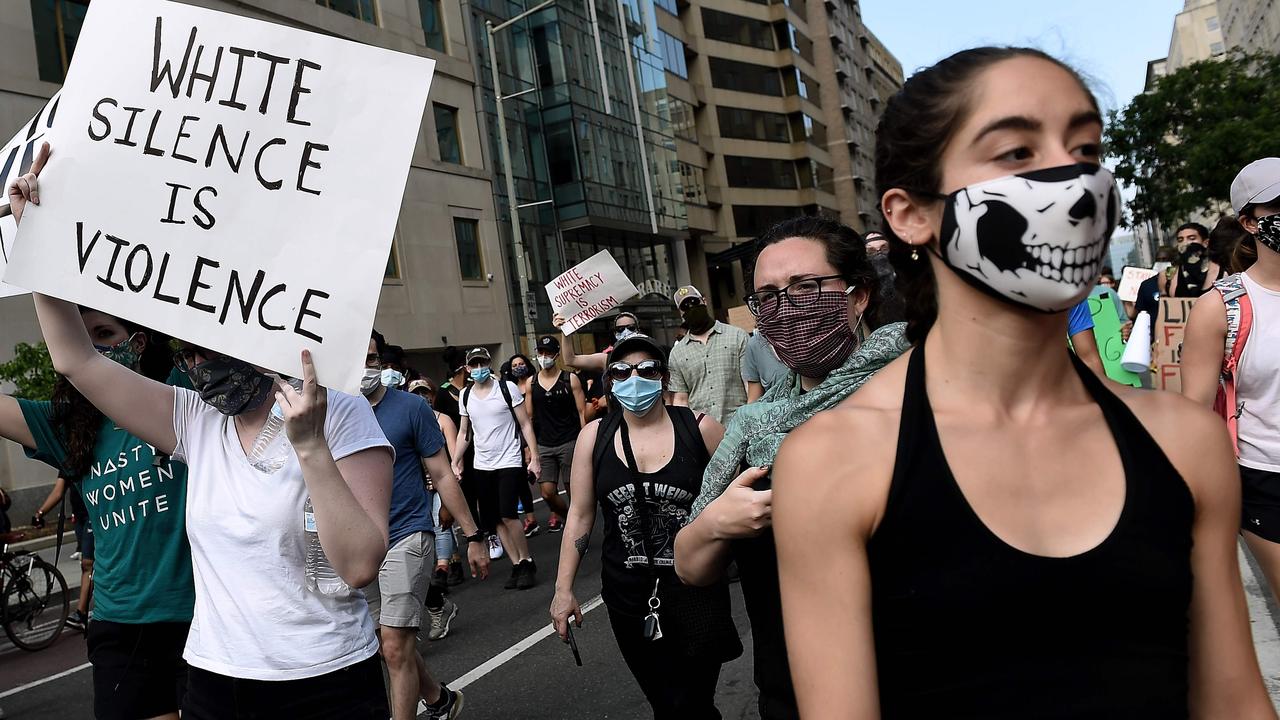
On Wednesday, Utah’s state epidemiologist issued a renewed plea for people to maintain social distancing and exercise caution after state figures showed an average of about 200 new cases a day last week, the highest weekly average by far since the pandemic began.
South Carolina has logged its three highest daily case counts in the past week. The two highest death counts have occurred in the last week – 20 deaths on May 27 and 17 deaths on Wednesday.
RELATED: Disease is on the rise
Both in the US and around the world, it is the poorest and most vulnerable who have been the hardest hit, UN Secretary-General Antonio Guterres said in a video message.
The millions of people on the move including those forced to flee their homes because of violence or disaster and migrants “face three crises rolled into one,” he said.
A health crisis in conditions where social distancing is “an impossible luxury” and health care, water and sanitation are often hard to find is made worse by their economic plight and by pandemic-related restrictions on movement, he said.
$8.8 BILLION RAISED FOR VACCINE
Meanwhile, a vaccine summit hosted by Britain overnight raised billions of dollars to immunise children in developing countries as experts wrestled with the difficult question of how any potential vaccine against the new coronavirus might be distributed globally – and fairly.
The United Nations and the International Red Cross and Red Crescent Movement have urged that “a people’s vaccine” be developed for COVID-19 that would be freely available to everyone, calling it a “moral imperative”.
RELATED: Sign US has given up on coronavirus fight
Thursday’s event raised $US8.8 billion, exceeding its target, for the vaccines alliance GAVI, which says the funds will be used to vaccinate about 300 million children in dozens of countries against diseases like malaria, pneumonia and HPV.
GAVI also announced a new “advance market commitment” mechanism to enable developing countries to get any effective COVID-19 vaccine when available.
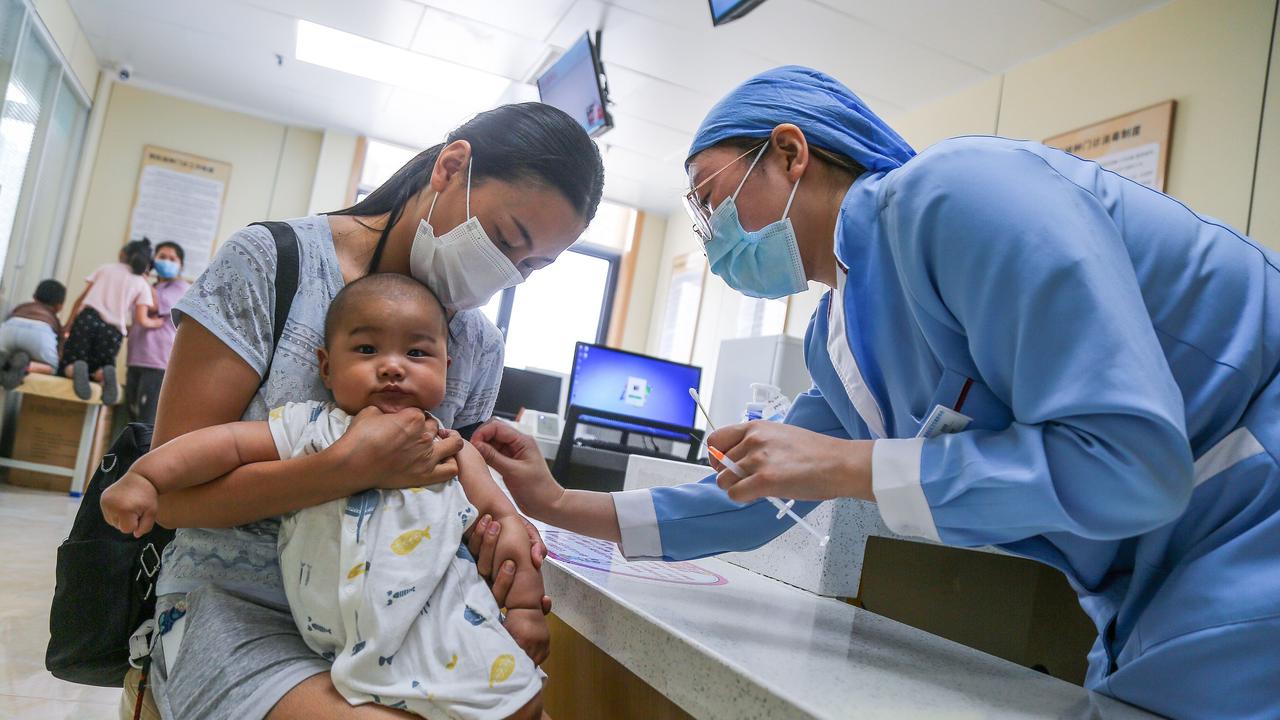
It hopes to raise an additional $2 billion for that effort, to immunise healthcare workers as well as high-risk individuals and create a buffer of doses to be used where needed most.
But experts pointed out that the unprecedented pandemic – where arguably every country will be clamouring for a vaccine – may make efforts at fair distribution extremely messy.
RELATED: Sweden admits it got COVID-19 response wrong
The worldwide scramble for masks and ventilators that erupted in the early stages of the outbreak – where France took over the country’s mask stocks so they could be given to first responders and others inside the country and the US apparently paid off shippers to redirect ventilators to the US – are not encouraging signs that there will be much global co-operation if and when a coronavirus vaccine is available.
“Rich countries will most likely try to push their way to the front of the queue, leaving poorer countries at the back, and that’s a problem,” said Jimmy Whitworth, a professor of international public health at the London School of Hygiene and Tropical Medicine.
“I can’t imagine any country saying, ‘Africa’s need is greater than ours, so they can get the vaccine first and we’ll remain vulnerable.”’



